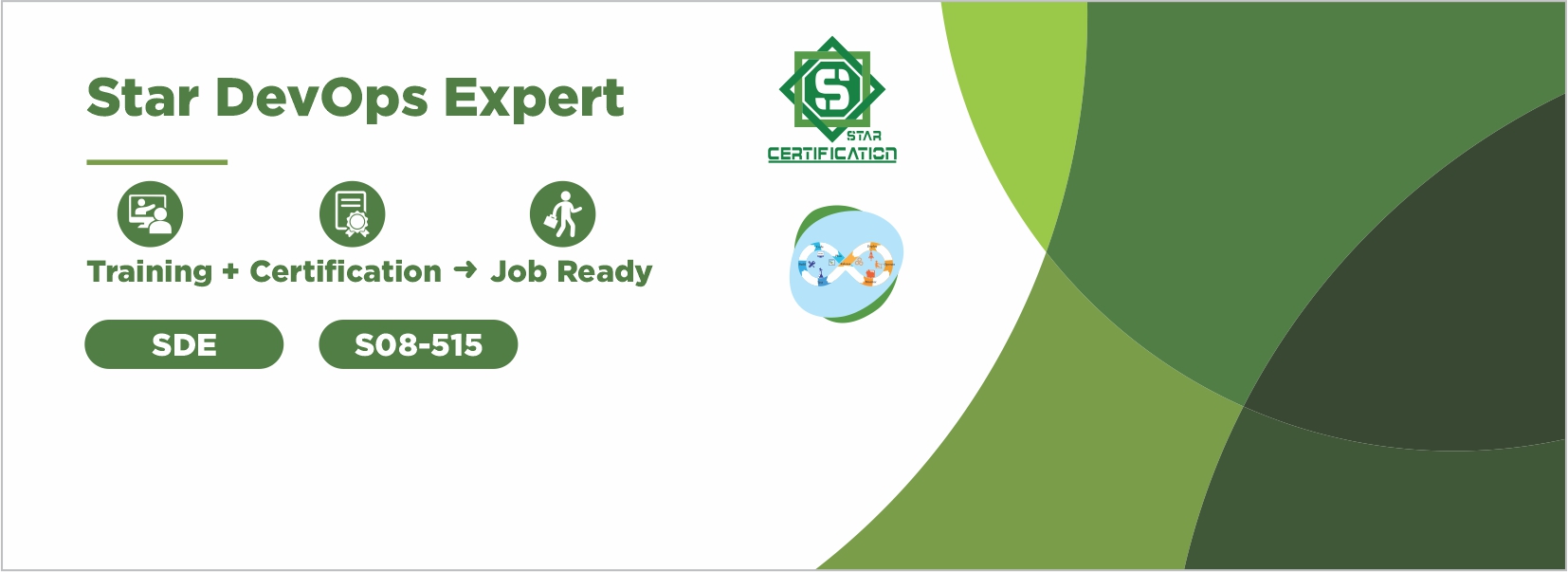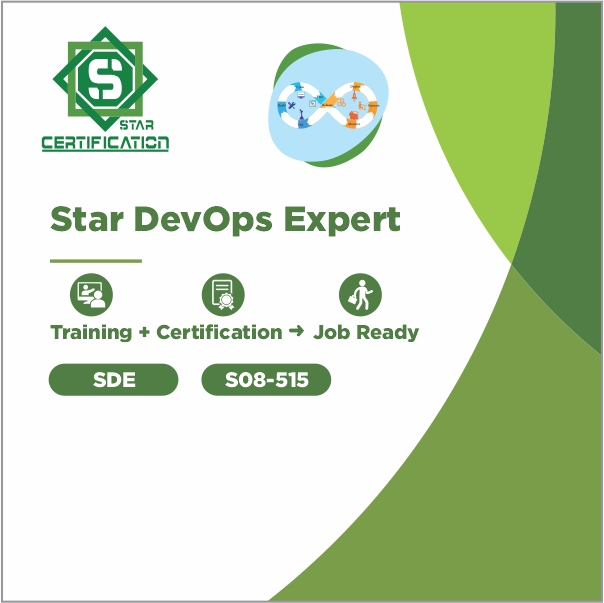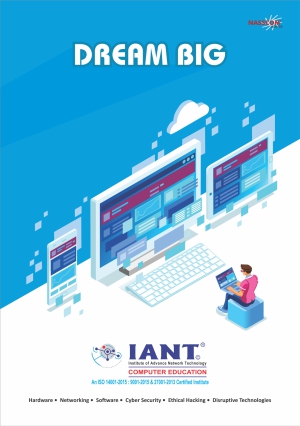DevOps
Every IT industry needs to keep a separate track of their development and operation processes independently. As a game-changing technology, DevOps supports modern business processes and makes a big difference in inter-relating these two independent processes. DevOps has software development methods that highlight collaboration and open communication between teams to create robust, more failure-proof software. Teams that have adopted the DevOps ethos have a better chance to handle IT incidents and suffer less downtime. As more and more companies adopt DevOps, it is expected that 80% global fortune companies will benefit from DevOps by 2019.
The Star DevOps Expert (SDE) certification training is the most relevant certification for DevOps practitioners. This certification course will help the learners master the key DevOps concepts including configuration management, continuous integration deployment, delivery and monitoring using DevOps tools such as Git, Docker, Jenkins, Ansible, and Nagios in a practical, hands-on and interactive approach.
The SDE certification focuses on all the major tools required to implement DevOps in an organization. DevOps to automate agile methodology and Docker container are covered in this course, with more emphasis on using multiple tools for implementing DevOps process. Effective implementation of DevOps is to create a trust among development and operation people and how it is possible using Blockchain also feature in this course.
Audience
- Beginner-Intermediate
Course Objectives
In this course, you will learn about:
- DevOps methodology and its key concepts
- Linux for DevOps
- Cloud computing and DevOps
- Source code management with Git
- Continuous integration concept
- Configuration management in DevOps
- Popular DevOps tools like Docker, Puppet, Chef and SaltStack
- System monitoring using Splunk
- The concept of version control with Nagios
Course Outcome
After completing this course, you will be able to:
- Explain DevOps methodology and its key concepts
- Understand cloud computing and virtualization concepts
- Use DevOps tools like Ansible, Chef, Jenkins and SaltStack
- Manage source code using Git
- Help organisations to reduce their downtime
- Deploy DevOps concepts to respond faster to client needs
- Explain version control with Nagios
Table Of Contents Outline
- Basics of Software Engineering Agile Methodology and DevOps Process
- Exploring Linux for DevOps
- Cloud Computing and DevOps
- Managing Source Codes
- Building the Code
- Automated Testing and Test-Driven Development
- Continuous Integration and its Tools
- Managing Configuration in DevOps
- Docker in DevOps
- Puppet and Chef for DevOps
- SaltStack for DevOps
- System Monitoring in DevOps using Splunk
- Nagios for DevOps





